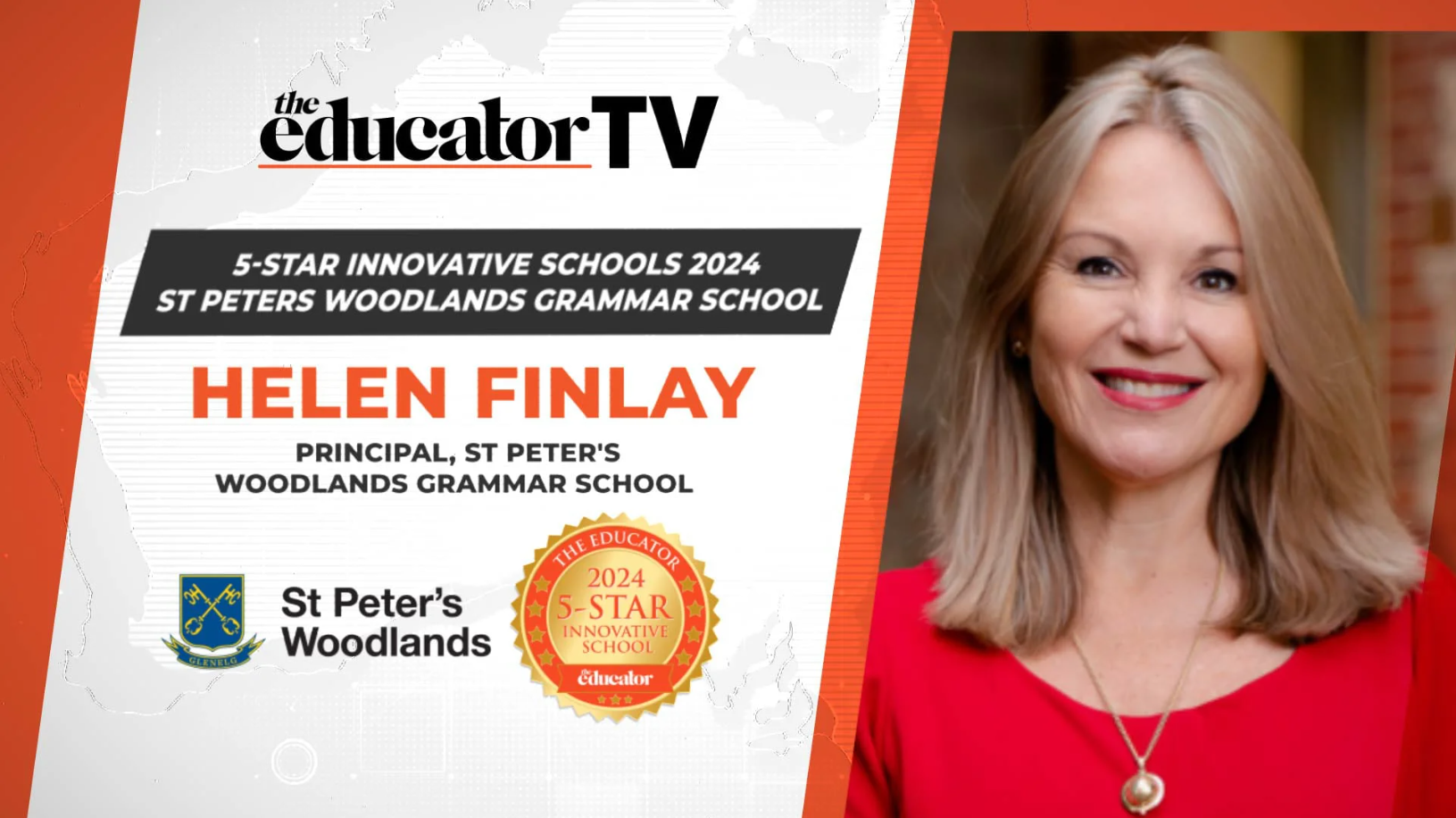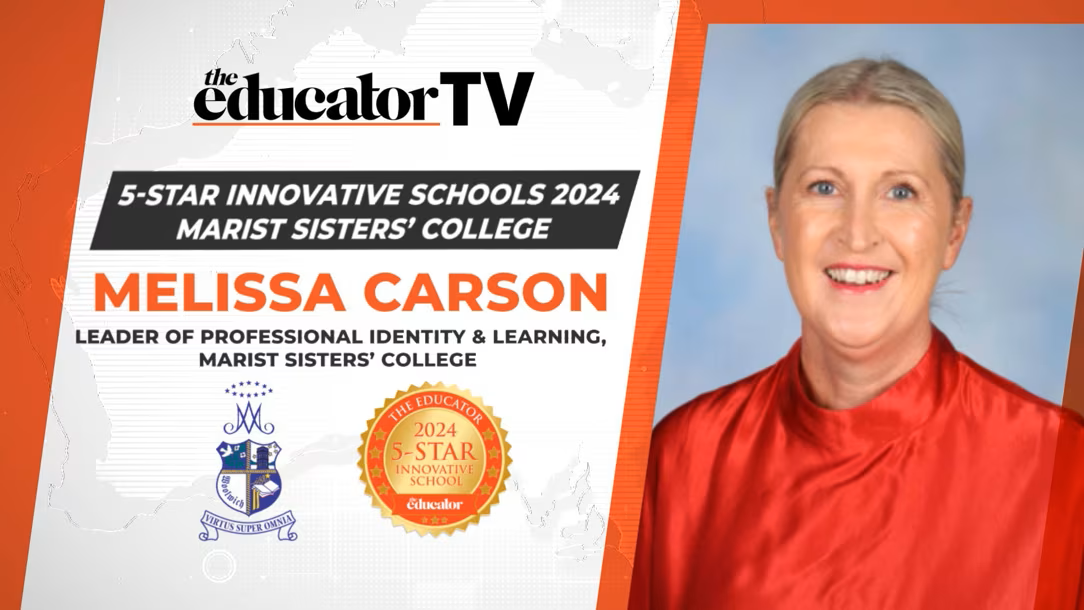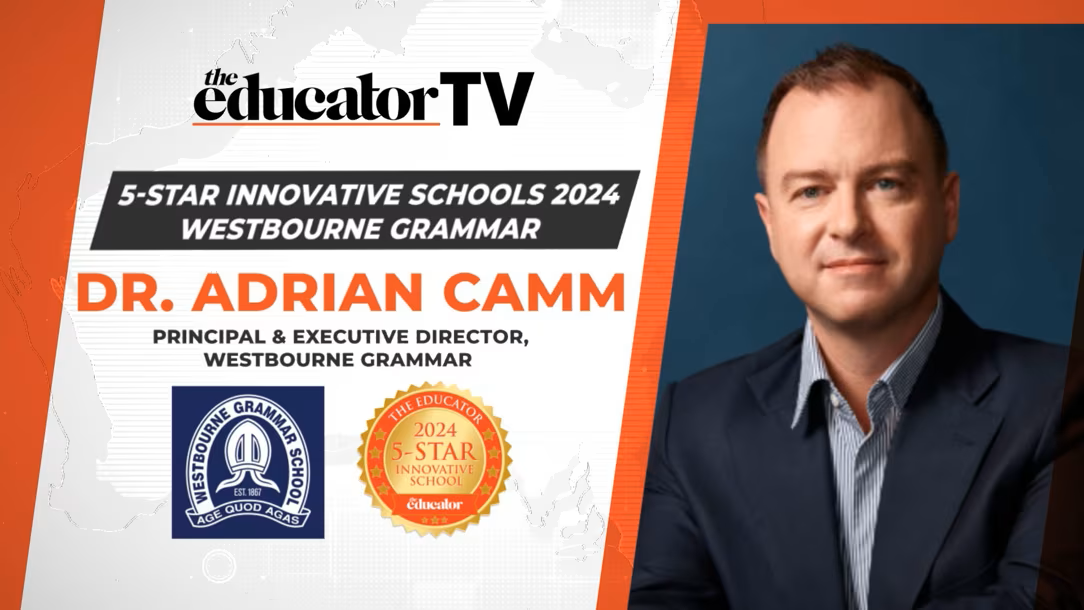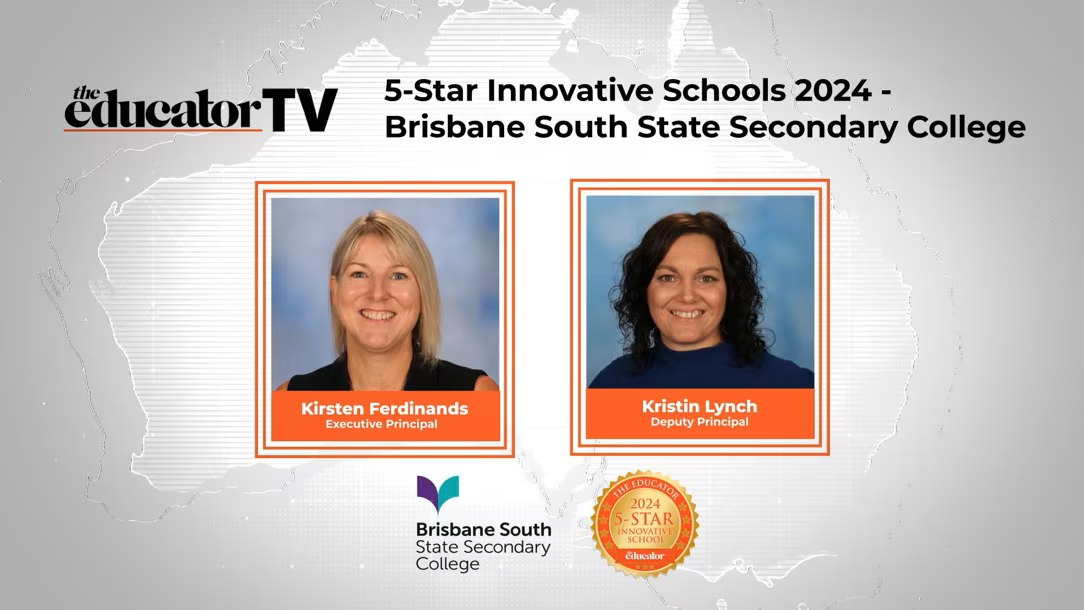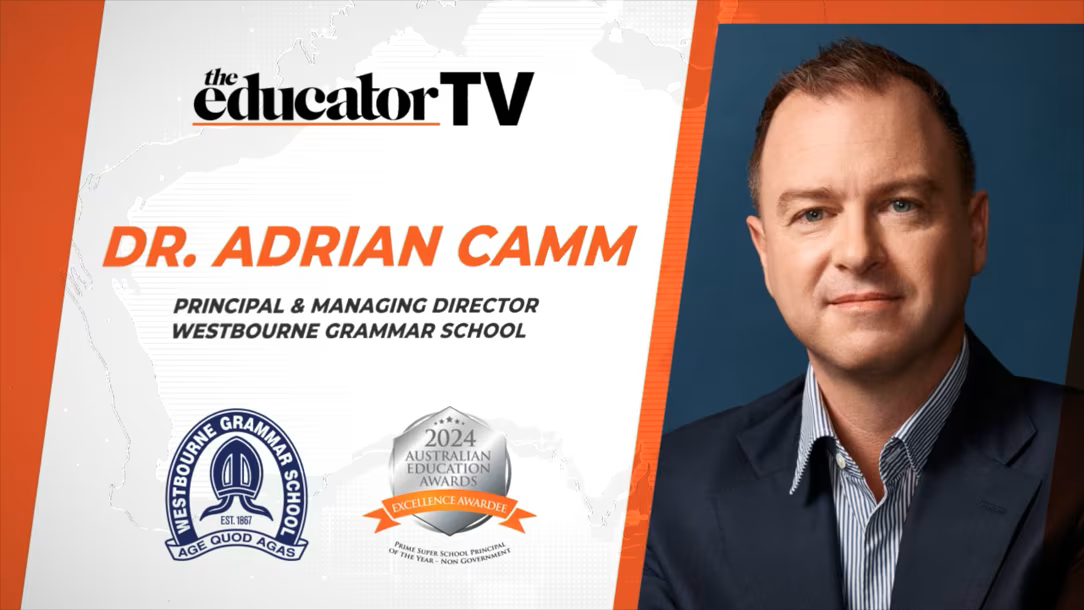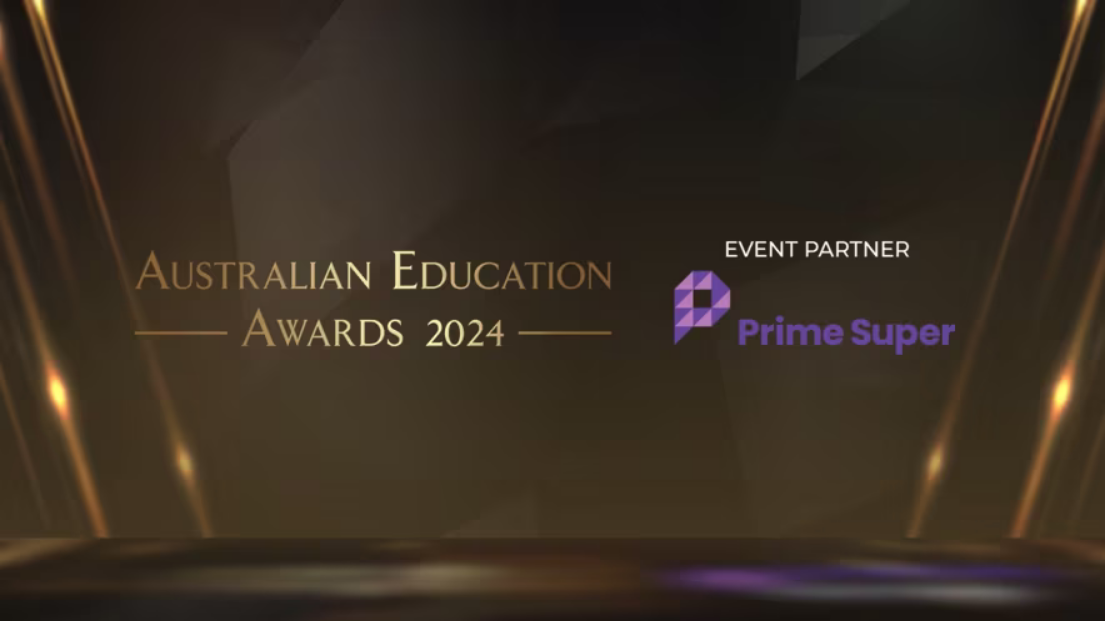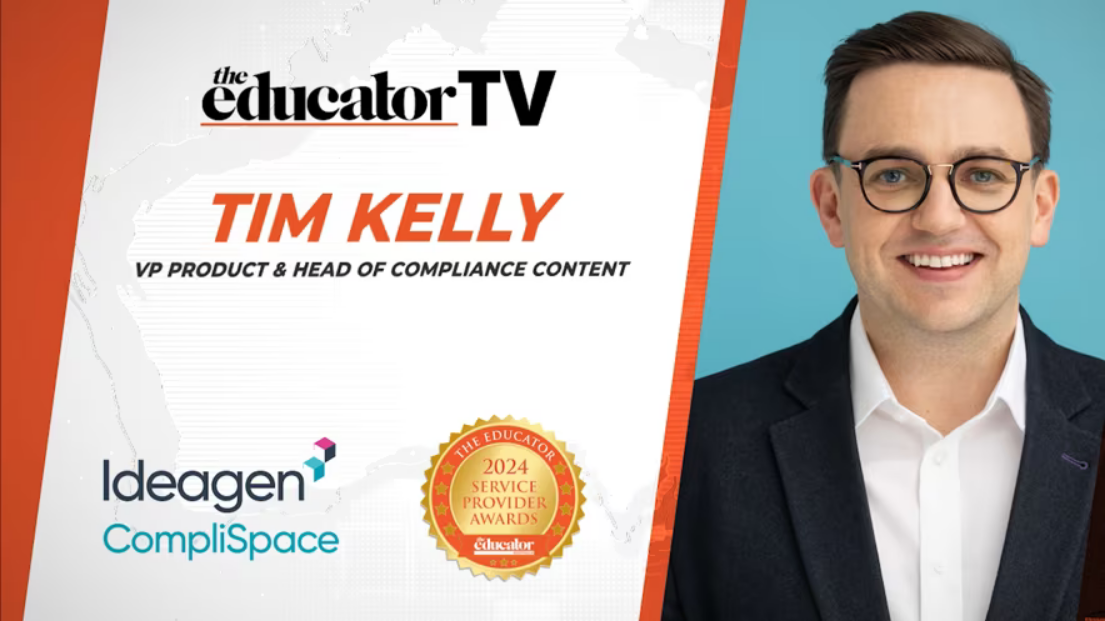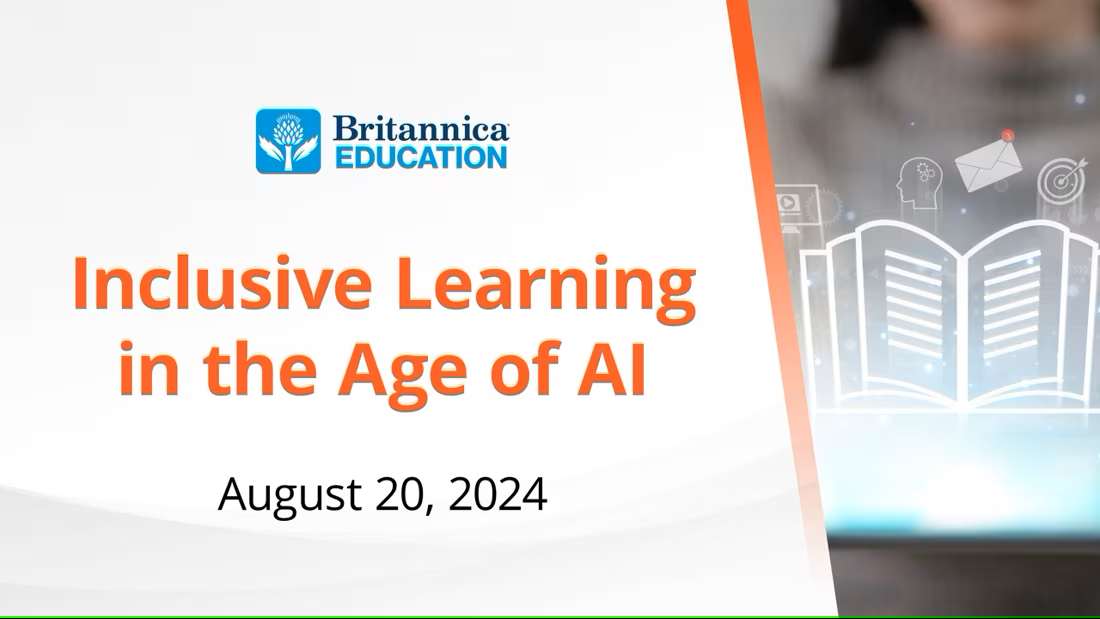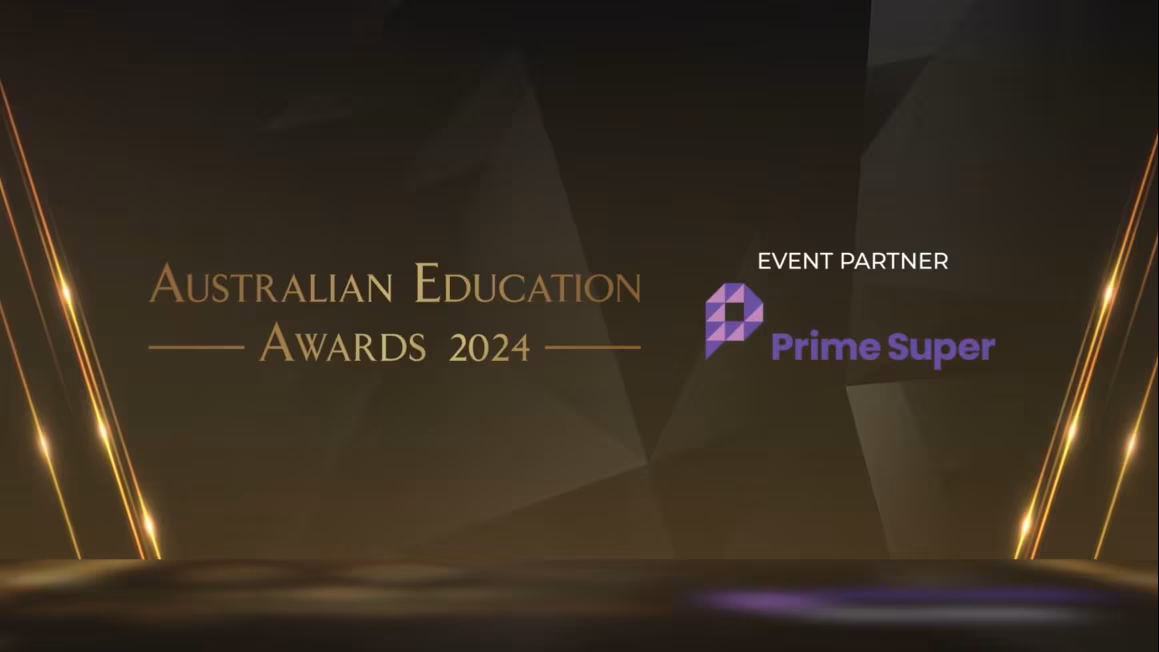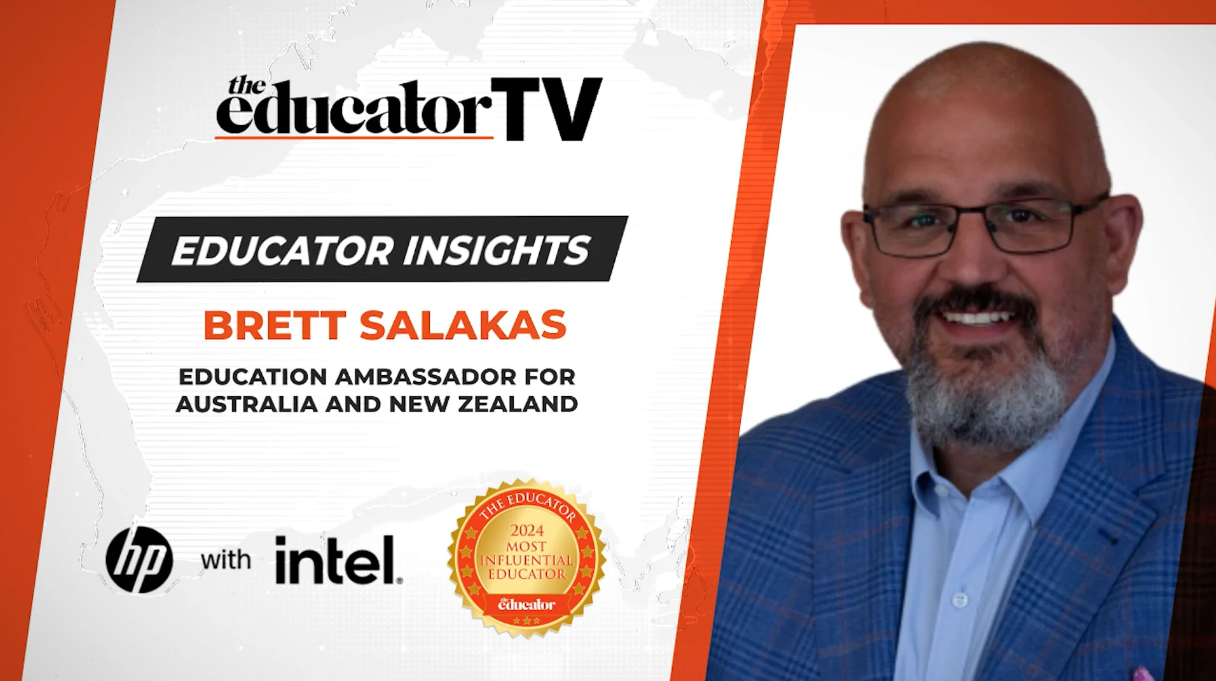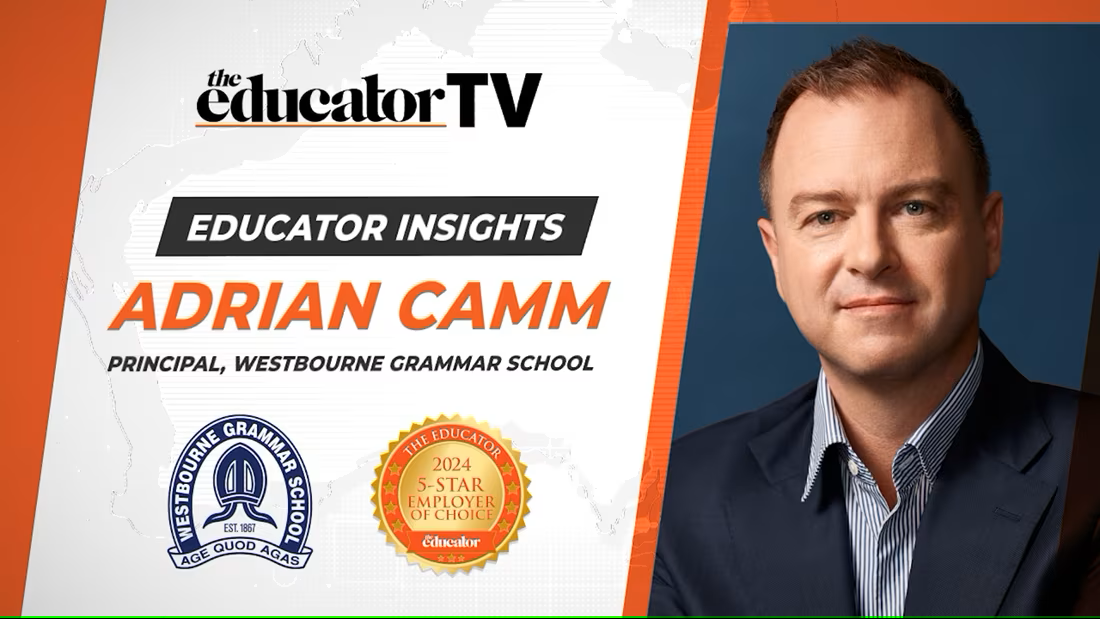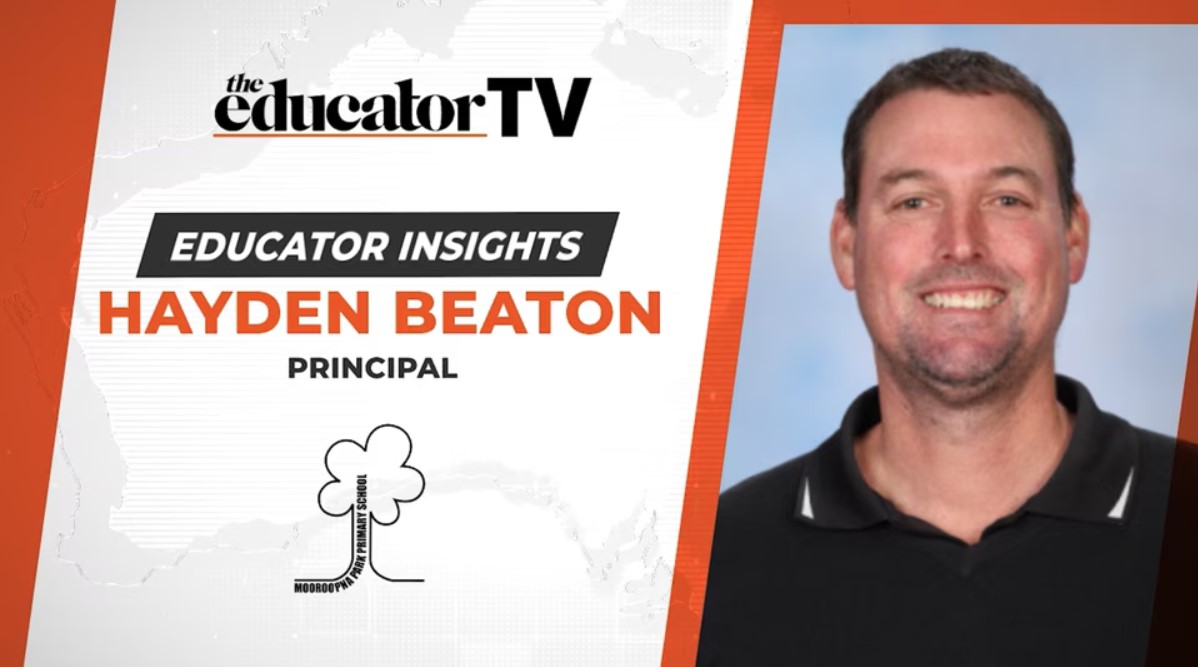What makes an outstanding principal?
In this episode, join former Medowie Christian School principal Simon Herd, who walks us through his educational philosophy and how this has informed your approach to school leadership. Simon also explains the strategies he used to manage the worst disruptions of the last two years to ensure his school and its staff were able to bounce back stronger.
To view full transcript, please click here
Speaker1: [00:00:13] Hello and thank you for joining us today. I'm Brent Henneberry, the editor of the educator. And joining me today is Simon Hurd, the former principal at Madali Christian School in New South Wales. Today, Simon's the managing director of new leadership, in addition to being an outstanding education leader. Simon is also a highly regarded international speaker who has been invited to present keynote addresses and workshops at numerous global conferences. At the Education Awards in December, Simon received an excellence award in the category for non-government school principal of the Year Simon, you've said that leadership is about growing fruit on other people's trees. Can you tell our viewers a bit about this educational philosophy and how it's informed your approach to school leadership?
Speaker2: [00:00:55] Yeah, thank you, it's a great opportunity to share and certainly a great honor to be part of the awards. For me, that notion of growing fruit on other people's trees is what leadership is really about. This award, for me was recognition of the entire team that allowed the school community to do very innovative things and different things. So for me, it was about empowering them, creating that culture of delegation of responsibility, so trusting the staff and developing high-performing teams based out of high trust relationships.
Speaker1: [00:01:31] Now, looking back on the last two years, what did you learn from this experience as a leader and how did that shape your priorities?
Speaker2: [00:01:37] Yeah, it's certainly a very challenging time in education for us in our community. We'd already been on a learning journey as a community, re-imagining what school could look like. So we'd been working with a Harvard neuroscientist on the way the brain actually learns and how we can actually engage technology into that, the experiences that young people have and how that can enrich their learning experience. So the journey of incorporating the future values of education as well and the competencies, we're certainly at the forefront of our conversation. So as we kicked into our business continuity plan early 2020. Our staff were able to embrace it quite quickly and see that the embedding of technology into what we were doing was able to flip the classroom experience, so that was quite an easy process, took a little bit of extra time from the staff, but mentally they'd already been on this journey of climbing a new mountain so that we can reimagine what learning would be like for our young people. The significant part that the pandemic really threw at us was the sense of community that schools are about creating community and establishing safe places for our young people, and the challenge of that being taken out of their midst and the uncertainty that they were confronted with every day with the media and numbers and statistics.
Speaker2: [00:03:03] So we really made a strong intent about, first of all, connecting as a staff daily in that space and looking out for each other and building a positive culture in that space with our teams. And then from that, we replicated that with our young people that were in our classes, whether that was our prep students through to Grade 12 students that we wanted to maintain that pastoral care connection, the wellbeing programs with them and to really ensure that we knew where the students were at in the midst of uncertainty. So the ability to connect in with them and to really develop that aspect of the program was quite significant. And I guess the other key part was the way that we continue that hybrid mix, we had a number of students on site being in a community with a large defense community and a number of essential workers was a challenge. But having staff that again could value the neuroscience of having that hybrid learning experience and opportunities for the young people to work independently and build some of those skills certainly helped us thrive throughout the pandemic experience.
Speaker1: [00:04:12] Do you feel that the school community as a result of all that became stronger?
Speaker2: [00:04:17] Yeah, one hundred percent. I think again, the opportunity for our staff to, first of all, engage with each other was another strong growth point that we connected regularly checked in on each other, and the leadership team really took that to a new level. And then that flowed out to our student community as our staff took that time and our parent community had the opportunity to still engage and connect with us in different ways, but also to instead of doing newsletters throughout that period, I wanted to keep the face connection to the parent. So I created a number of videos that we distributed to our families and had videos ready if we were closed down due to a positive case scenario and just tried to keep that personal interaction alive with our family. So I think again that trying to create a sense of normality with certainly a significant focus for us
Speaker1: [00:05:15] And such a small but very powerful thing when you think about it, just just that face to face connection and what was lost through that pandemic to bring that back. Very inspiring stuff to see.
Speaker2: [00:05:29] Yeah. And I think to be strategic in that was certainly critical that you could let things slide or say it was too difficult. But having a strategic intent, that communication was really going to be a key part of what we did. Again, believe created consistency and simplicity in our messaging to our community that really helped everyone continue to go forward.
Speaker1: [00:05:51] Now, although the pandemic is still with us, obviously, but I think it's fair to say schools have gotten the hang of things now in 2022. What do you see as the biggest challenges facing school leadership in general this year? And what changes do you think should be made to help leaders overcome these?
Speaker2: [00:06:08] Yeah, it's certainly an interesting space. We've had many ebbs and flows throughout the past couple of years, and as we try and continue a sense of normality in schools and keep schools open. I think one of the big challenges for school leaders is that for many, it's it's been about keeping a sense of treading water. We'll just keep our nose above water throughout the last couple of years and then we'll go back to the way things work, even the way formal exams were conducted and how much focus was put on that at the end of last year, particularly in New South Wales, for students to complete their HSC. I think for me, one of the exciting things is keeping it forefront on the agenda if. Education growing forward rather than just going back to the way things were. Schools and staff and leaders had to adapt very quickly and take significant ground that I think may have taken years or decades to achieve otherwise. But the danger is that we just slip back into old habits and things that are comfortable for us. But to be continuing to work on the OECD competencies they're designed around the future workforce needs for our young people as they go beyond the school fence to experience life and contribute to our communities and enrich our communities. So for me, I really believe that as leaders, we have to continue to take the foundations of the last two years and layer onto that the opportunity for growth, for innovation and for change in the way we deliver curriculum. But more importantly, how we assess that. Again, think that the transformation in the way universities are valuing diversity and entry starts to shift that paradigm around examinations and the focus of that. So I believe that that needs to be raised on a higher profile. That's the nature of what we're trying to equip our young people with and how they demonstrate their learning and their knowledge, I think, is quite crucial as a new horizon for learning in Australia.
Speaker1: [00:08:16] Are you hopeful that things will change for the now?
Speaker2: [00:08:20] No, I definitely am, and I think there's certainly a generational change that's coming in leadership across the country. There's a number of young leaders that are stepping up and really enthused by the opportunities, and I think governments are starting to listen and particularly with some of these global drivers of neuroscience in the education starting to filter in to training courses for leaders and for staff. I think it's crucial that we look at the best practices of science and what globally has been recognized of how learning can take place and how that can really enrich our community. As a result, a significant step forwards and as governments start to see that we move away just from our international rankings, but we actually look at the economy and what our young people are contributing to the economy in those different ways. I think we'll really start to leap forward and the value of education. And finally, on that point, I think the broader community really started to realize what the role of the teacher is as they became teachers themselves. And historically, you hear many people say teachers have got it so good and that their life is pretty good with the amount of holidays. But I think many parents started to appreciate how hard teachers work and the challenges that come. So I believe that that elevation of the teaching profession was quite significant and we need to continue to capitalise on that journey as well.
Speaker1: [00:09:46] Simon, thanks so much for sharing such powerful insights with us today. I think there are some, some really great takeaways that school leaders as we embark on a new year.
Speaker2: [00:09:55] Yeah, thanks for the opportunity to share. It's great that we can have these forums to help each other grow and become the leaders that we can to take our education system forward in Australia.
Speaker1: [00:10:06] Glenn Greenwald, thank you so much, Simon. And thanks also to our viewers for joining us. We'll see you in the next video.



